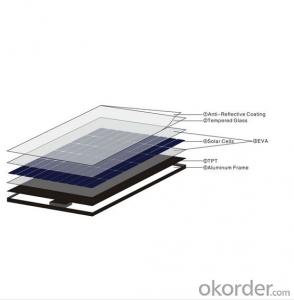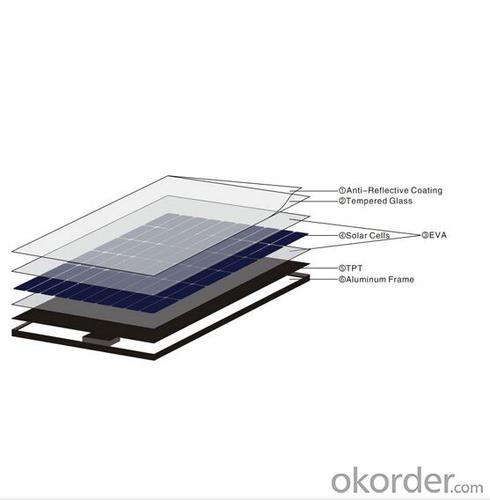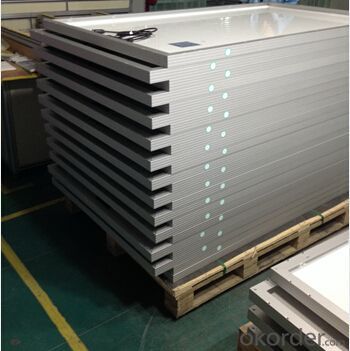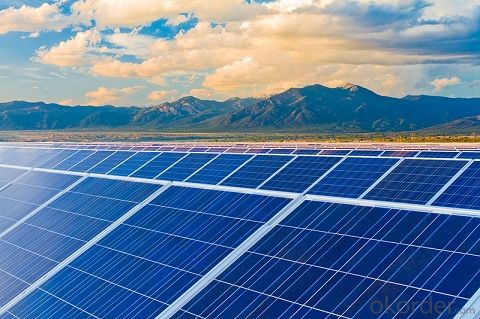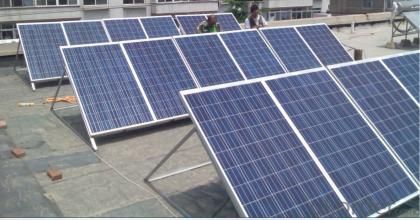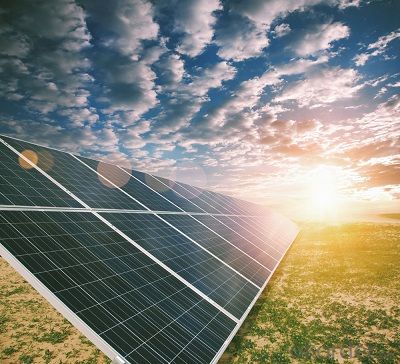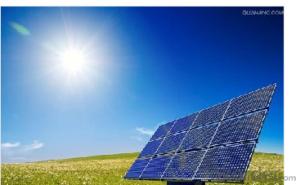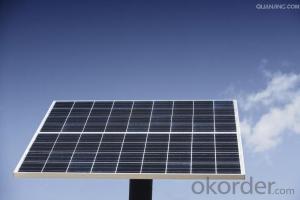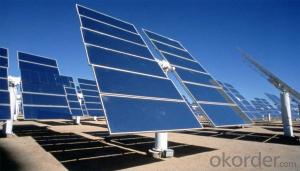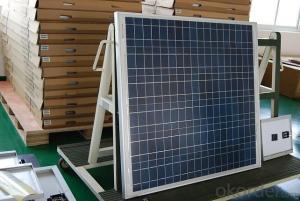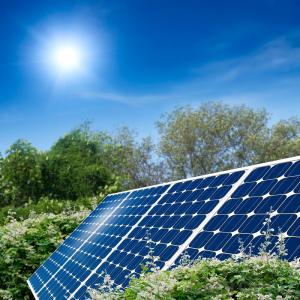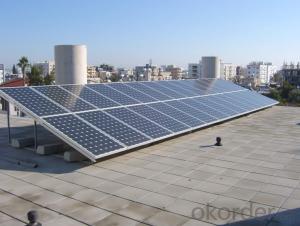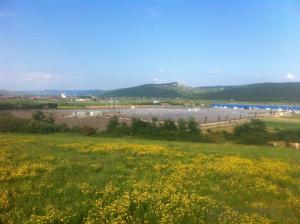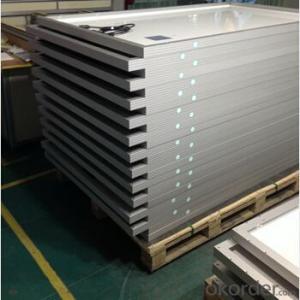Portable Solar Panels With Battery - CNBM Solar Monocrystalline 156 Series 45W
- Loading Port:
- Shanghai
- Payment Terms:
- TT OR LC
- Min Order Qty:
- 1000 watt
- Supply Capability:
- 20000000 watt/month
OKorder Service Pledge
OKorder Financial Service
You Might Also Like
Specification
Materials
Silicon
Guarantee
12 yrs free from defects in materials and workmanship
No less than 90% within 10yrs and no less than 80% within 25yrs
TUV(IEC61215&IEC61730), CE, UL
Application
Photovoltaic/ solar/ green energy/ energy saving
Descriptions
1.High efficiency crystalline silicon solar cell. Even if under the weak light, the solar module can produce maximum power output.
2.Tempered glass (toughened glass): Anti-reflecting coating and high transmission rate glass increase the power output and mechanical strength of solar module.
3. EVA and TPT: Using high quality EVA and TPT to prevent destroying and water.
4. AI frame: Without screw, rner connection. 6 holes on the frame can be installed easily.
5. Junction box: Multi function junction box with water proof.
6. Long lifetime: ≥25 years; Less power decrease.
7. Good performance of preventing from atrocious weather such as wind and hails.
8. Resisting moisture and etching effectively, not effected by geology.
9. The certificate issued by international authority: UL, TUV, IEC, CE.
Packaging Details
26pcs/pallet, 28pallets/ 40HQ
Our solar panels are packed in cartons, and then pallet.
Shipping by sea or by air are both ok, it up to customer’s chose.
We’d like to inquiry the freight cost for customer after be informed exact quantity and destination address.
CNBM International Corporation is a professional solar panel manufacturer in China for CNBM brand . Silicon panel ( silicon module), as our main product, has high quality and good service. Our products are very popular in Europe, Australia, England, Middle East, Mexico, Argentina, Chili, Singapore and Africa.Furthermore, our products have gained international authorized certificates like TUV, UL and CE.
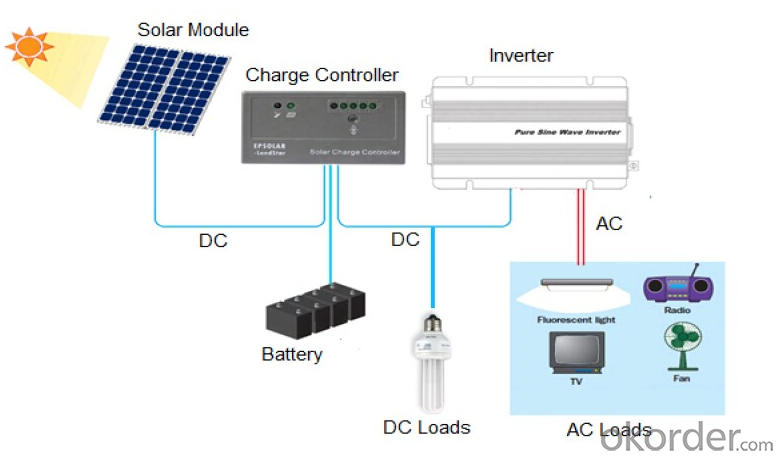
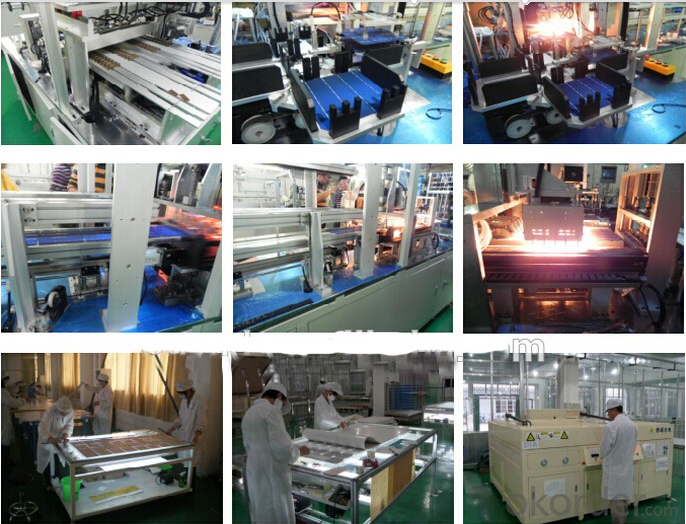

Why Choose Us
A. Professional Manufacturers , Strict quality control & power classification Silicon Solar PV Module
B. 100% A grade solar cell with Positive tolerance power range.
C. High Conversion Efficiency , High transmission rate , low iron tempered Anti-reflecting/coating film 3.2mm glass
D. Anti-aging & high visosity EVA
E. high frame resistant & Double-sided fluorine TPT
F. Anodized aluminum alloy high thickness frame
G. 3 or 6 bypass diodes , 90mm 4m2 cable , MC4 connectors & waterproof junction box
H. Long life, Easy installation, high wind & hail impact resistance
I. Be resistant to atmospheric exposure & effects of delamination
J. ISO9001:2008/ISO14001:2004/OHSAS18001:2007/ CE /TUV/CEC/ IEC/EN61215 IEC/EN61730/CHUBB INSURANCE
K. 10Years Manufacturing Quality Warranty , 10Years 90% Power output Warranty, 25Years 80% Power output Warranty
- Q: i am looking for solar panels and wind mill to put around our house and i was wondering were to find them
- From a decent solar panel store. Or you can get on the Internet and look for someone in your area.
- Q: Ok, so I've been having much success with the joule thief circuit and a LED, but i tried hooking it up to a small solar panel that can put out 2.5v on it's own, and can light up a white LED dimly by it self to the joule thief and it will not work ....my question is why? I already trouble shooted it, the circuit is not the problem, is it the amount of amps the small solar panel is capable of? not enough?
- Solar panels convert light energy to electrical energy with an efficiency of around 5%. A SMALL solar panel will only produce a small amount of power (watts) your joule thief circuit wont help because as you draw more current from the solar panel the voltage will drop; and your joule thief circuit just reduces the efficiency of the whole system Try adding another solar cell in series to get more voltage and more power.
- Q: How much space do solar panels require?
- The space required for solar panels depends on several factors such as the power output of the panels and the efficiency of the solar cells. On average, a typical solar panel requires around 10-20 square feet of space. However, it is important to note that solar panels can be mounted on rooftops, installed in large solar farms, or even integrated into building materials, allowing for flexibility in their placement and utilization of available space.
- Q: Hi. I hate the energy company. I hate my carbon footprint. I will likely move to a piece of property and put a decent-sized mobile home on it. I want solar panels so I can get my own power. I live in the state of Wisconsin. How much would this approximately cost? Would I need certain permits? How many panels can be used? Thanks for helping!
- I was in debt up to my eyeballs, and I needed help fast, so I looked to some free online programs. I had tried so many that were scams, but I finally found one legit one! In two months, I paid off $3000 of my debt.
- Q: Got a small project here in a remote location. There is to be a 2 volt deep cycle battery, the equipment to be powered from battery and solar panel to charge battery. The 2 volt battery puts out 55 AH. the max constant power draw from the equipment to be powered is 7.9 watts. Will a 30 watt panel at 2 volts be enough to run this system during sunlight and charge the battery for the equipment to run overnight?And, at 55 AH, how long can I keep a constant draw of 7.9 watts without a recharge?Thanks to all the input!
- Will a 30 watt panel at 2 volts be enough to run this system during sunlight and charge the battery for the equipment to run overnight? Maybe theoretically, but you're going to have very little margin for losses and clouds. I'll bet it has very little power when cloudy. 7.9/30 = 0.26. So at 00% efficiency, you'd need it to be charging more than 25% of each 24 hour period. In a summer with long days and a climate with few clouds, you might make it. But I think you're very close to the edge. And, at 55 AH, how long can I keep a constant draw of 7.9 watts without a recharge? For an ideal battery: time = Q V / P time = 55 A h * 2V / 7.9W time = 83 hours So you've got pretty good margin on your battery.
- Q: how to make a solar panel without buying any kit?Any things at home that can be used for solar panels(what are they?)procedures how to make a solar panel
- You can make a heat generator for a window--- build a box out of wood the top is glass or plexi the inside is black with a suspended panel in between and a opening on the top which is open to the inside of the window, The sun comes in and is warmed by the black in side and exits through the top into the room,
- Q: Can solar panels be installed in urban areas?
- Yes, solar panels can be installed in urban areas. In fact, urban areas provide great opportunities for solar panel installations due to the abundance of rooftop space and potential to generate clean energy in densely populated areas.
- Q: Where can I find the info (sites) that clearly gives the anatomy of a solar panel?Likewise, I want to know where can I find (sites) the solar panel that produces 3.75 v? Thank you very much!!!
- You've probably seen calculators that have solar cells -- calculators that never need batteries, and in some cases don't even have an off button. As long as you have enough light, they seem to work forever. You may have seen larger solar panels -- on emergency road signs or call boxes, on buoys, even in parking lots to power lights. Although these larger panels aren't as common as solar powered calculators, they're out there, and not that hard to spot if you know where to look. There are solar cell arrays on satellites, where they are used to power the electrical systems. You have probably also been hearing about the solar revolution for the last 20 years -- the idea that one day we will all use free electricity from the sun. This is a seductive promise: On a bright, sunny day, the sun shines approximately ,000 watts of energy per square meter of the planet's surface, and if we could collect all of that energy we could easily power our homes and offices for free.
- Q: i'm talking abt bulk panelling, how many MW do we get from km sq?
- As okorder / They are working on a reactor that makes diesel and electricity concurrently out of coal, biomass or possibly garbage in a non-polluting process.
- Q: im doin a science experiment and i have a battery that is 3.6 volts , does it matter wut voltage the solar panel that im connecting it to is . Does it need to match , be less or does voltage have no effect . If so wut does matter when choosing the type of solar panel to power a bettery?
- your solar panel has to be a bit higher in voltage than your battery to achieve charging. I.E . if your battery is 3.6 volts, your solar array voltage should be like 5.v. to make the charging take place. always a bit higher than your battery,. wattage is not so important, you can charge a whole slew of batteries with a .5 watt charger, it just takes a while. higher wattage will make it charge faster, tho. v. x a. =w.
Send your message to us
Portable Solar Panels With Battery - CNBM Solar Monocrystalline 156 Series 45W
- Loading Port:
- Shanghai
- Payment Terms:
- TT OR LC
- Min Order Qty:
- 1000 watt
- Supply Capability:
- 20000000 watt/month
OKorder Service Pledge
OKorder Financial Service
Similar products
Hot products
Hot Searches
Related keywords
